The inaugural edition of the Re:assemblages Symposium, jointly presented by Guest Artists Space (G.A.S.) Foundation and Yinka Shonibare Foundation (Y.S.F.) within the framework of the second chapter of the Re:assemblages programme, took place from November 4th-5th, 2025. Framed by four conceptual currents, Ecotones, The Living Archives, Annotations, and The Short Century, the symposium explored transitional zones as sites of renewal, considered archives and libraries as future-shaping practices, attended to gaps and silences in the archive, and revisited Africa’s twentieth-century histories of independence and cultural production.
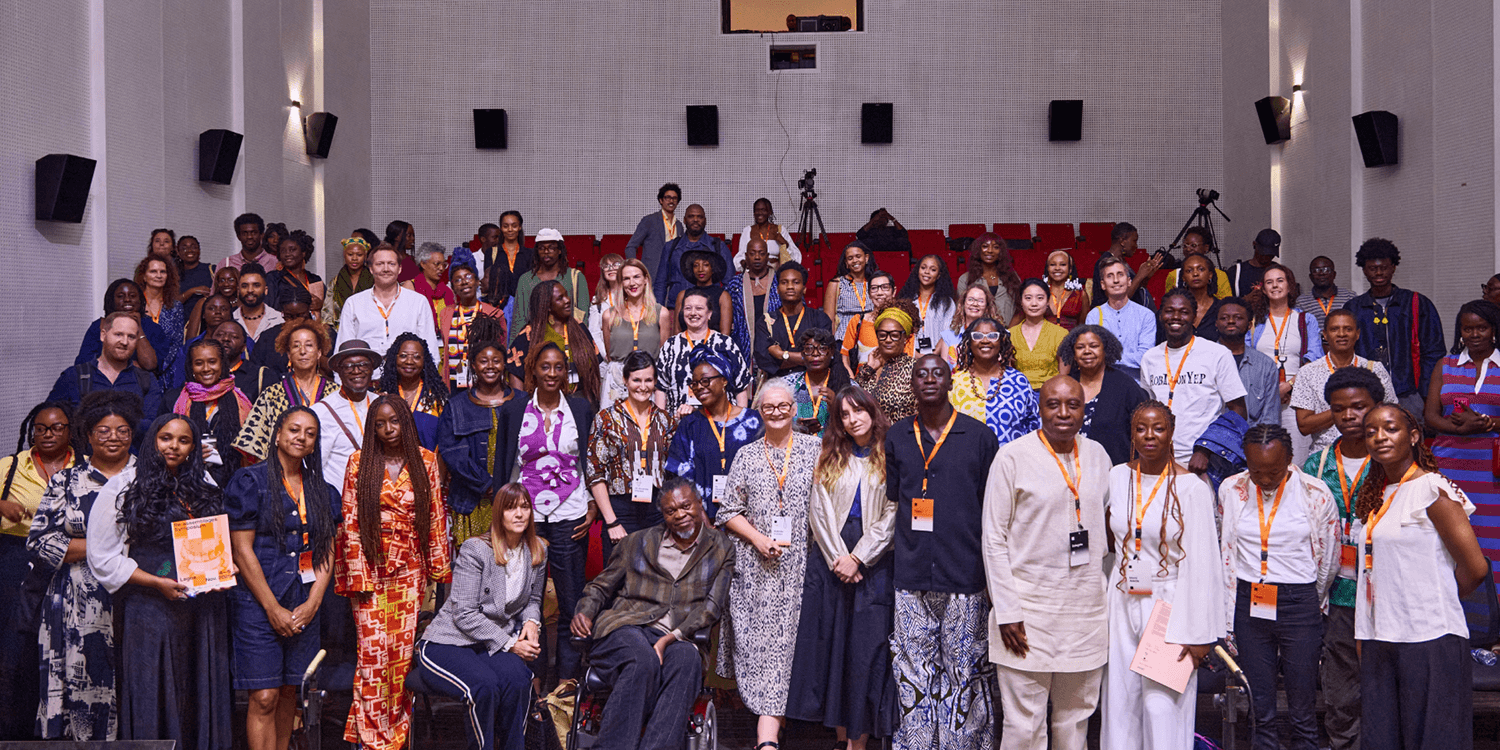 Re:assemblages Symposium Day Two at Alliance Française de Lagos. 5th November, 2025.
Re:assemblages Symposium Day Two at Alliance Française de Lagos. 5th November, 2025.
The programme opened on 4 November with a performance by artist and writer Adjoa Armah in the open-air amphitheatre at Alliance Française. Part of her ongoing series Atlantic Marginalia, the performance invoked the textures of Badagry beach through movement, sound, and recitation, drawing together sand, memory, and the afterlives of enslavement to set the symposium’s ecological and sensorial tone. Welcome remarks followed from G.A.S. Executive Director Moni Aisida, Y.S.F. CEO Belinda Holden, and Re:assemblages Curator Naima Hassan.
The first keynote roundtable, How will we share this earth? Situating Afro-Ecotones along the Atlantic, Indian and Pacific Oceans, chaired by Moni, featured Art X Lagos Curator-at-large Missla Libsekal, Associate Professor Janine Francois, artist Jadesola Olaniyan on behalf of Ala Praxis, a research-driven art collective, and Associate Professor Eve Oishi. Speakers threaded West African coastal histories with Caribbean and Asia-Pacific narratives, exploring mangroves, gardens, sound, anti-colonial solidarities, and transoceanic memory as ecotonal modes of care. The second keynote panel, Destabilising the Archive: Towards Ecosystems of Repair and Revival, moderated by Re:assemblages advisor Dr. Oluwatoyin Zainab Sogbesan, with Françoise Billion Richardson Curator of African Art at the New Orleans Museum of Art Dr. Amanda Maples, Director of the Museum of West African Art Ore Disu, and co-founder of Women’s History Museum of Zambia Samba Yonga, examined restitution from the perspectives of living artists, archives, memory work, and social justice.
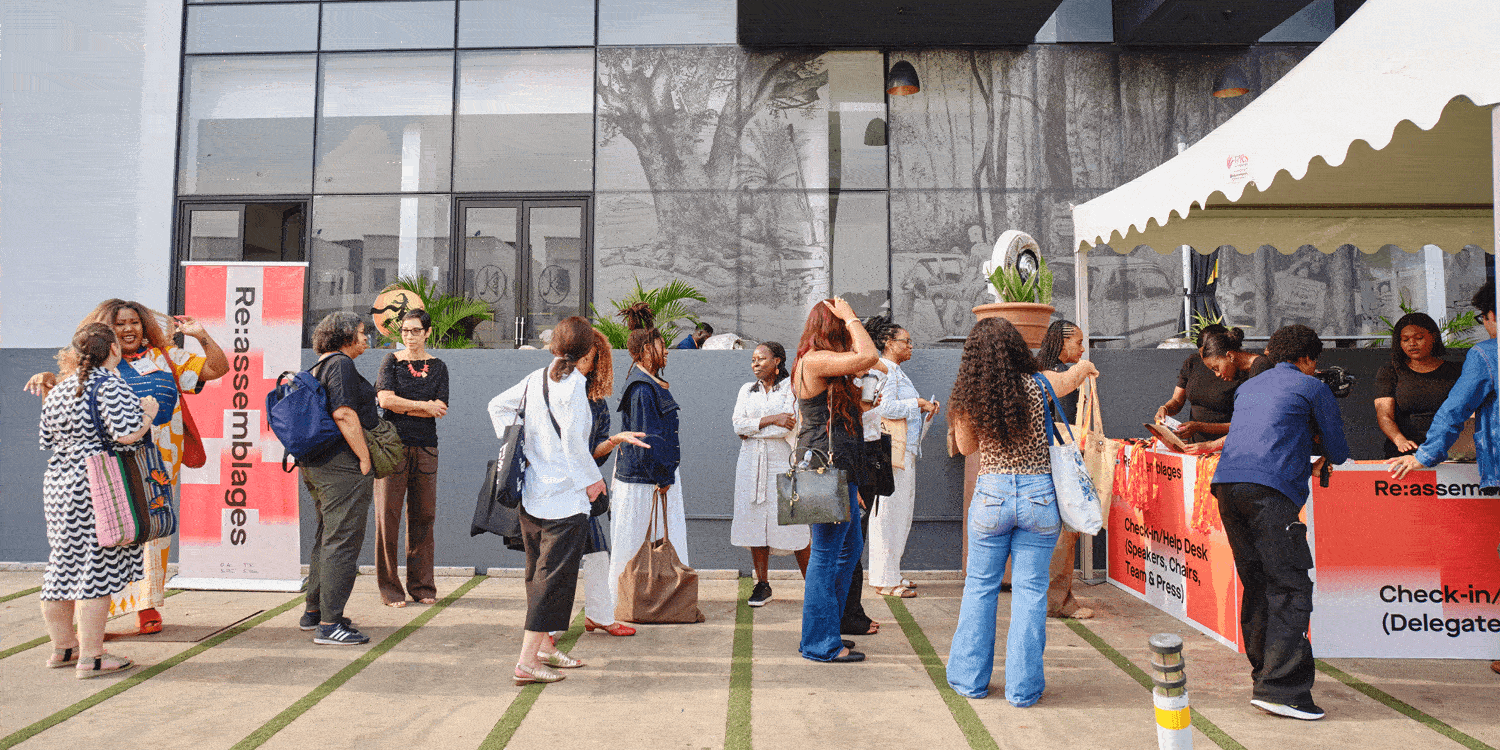 Re:assemblages Symposium Day One at Alliance Française de Lagos. 4th November, 2025.
Re:assemblages Symposium Day One at Alliance Française de Lagos. 4th November, 2025.
Afternoon parallel sessions included Sustaining the Otherwise:The Unruly Archive, led by curators Amal Alhaag and Selene Wendt, and G.A.S. alumnus Quinsy Gario, exploring archives as unruly, embodied, and performative. In Healing the Damned, facilitated by artist and researcher Banji Chona, participants engaged with colonial ecological wounds through film and dialogue on the Kariba Dam. Artifice and Authenticity, led by theatre practitioner Dr. Kanyin Ajayi and G.A.S. alumna Joey Aresoa, examined post-Négritude theatre through performance, archival material, and embodied readings, animating overlooked Francophone dramaturgies. The final session, Black Feminist Archival Practices and Fugitive Art Histories, led by writer and PhD candidate Josie Hodson and artist/writer Jamilah Malika Abu-Bakare, traced intimate, insurgent, and fugitive dimensions of Black archival work through the Hatch-Billops Archives and Glenn Ligon’s To Disembark, exploring how Black life animates archives as shifting, affective, and resistant spaces.
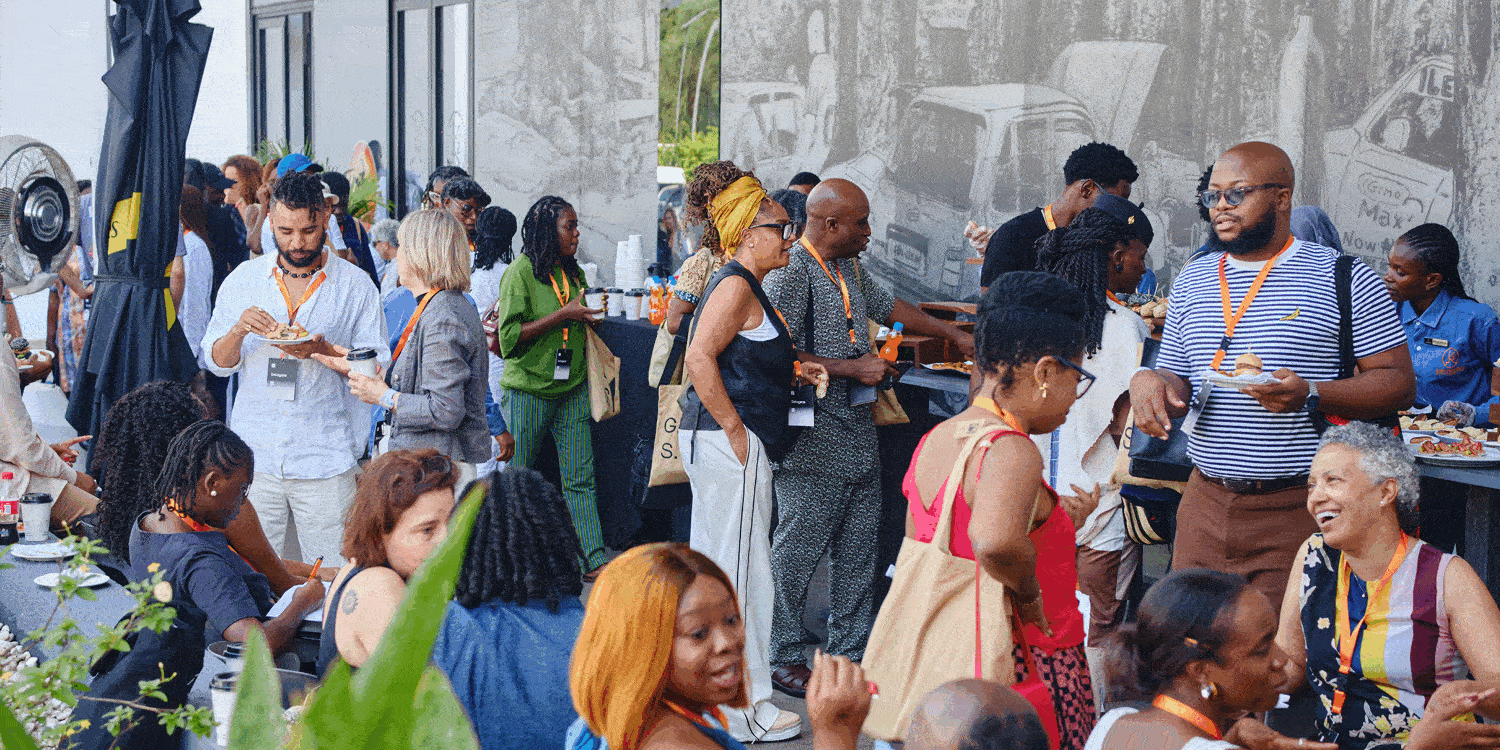 Re:assemblages Symposium Day One at Alliance Française de Lagos. 4th November, 2025.
Re:assemblages Symposium Day One at Alliance Française de Lagos. 4th November, 2025.
Day One concluded with Rematriating the Archive, chaired by Professor and Director at Spelman College Dr. Cheryl Finley in conversation with storyteller Sylvia Arthur, Director-General of the Centre for Black and African Arts & Civilisation Hon. Aisha Adamu Augie, and independent curator Dr. Jareh Das. The panel examined rematriation as conceptualized by Indigenous scholar Dr. Robin Gray, framing the return of cultural property and knowledge to rightful custodians while foregrounding care, orality, embodiment, kinship, and collective memory. The evening continued at G.A.S. Lagos with a satellite event: the screening of the work-in-progress film Sister, Sister by filmmaker Olukemi Lijadu, tracing the life and legacy of her aunts, the Lijadu Sisters, twin pioneers of Afro-psychedelic funk in 1970s–’80s Nigeria. A discussion with Olukemi, moderated by artist and G.A.S. trustee Temitayo Ogunbiyi followed, examining the themes and thoughts behind the film. Naima Hassan also launched the G.A.S. Reading Room, offering encounters with publications connecting African and Afro-diasporic art and cultural ecologies.
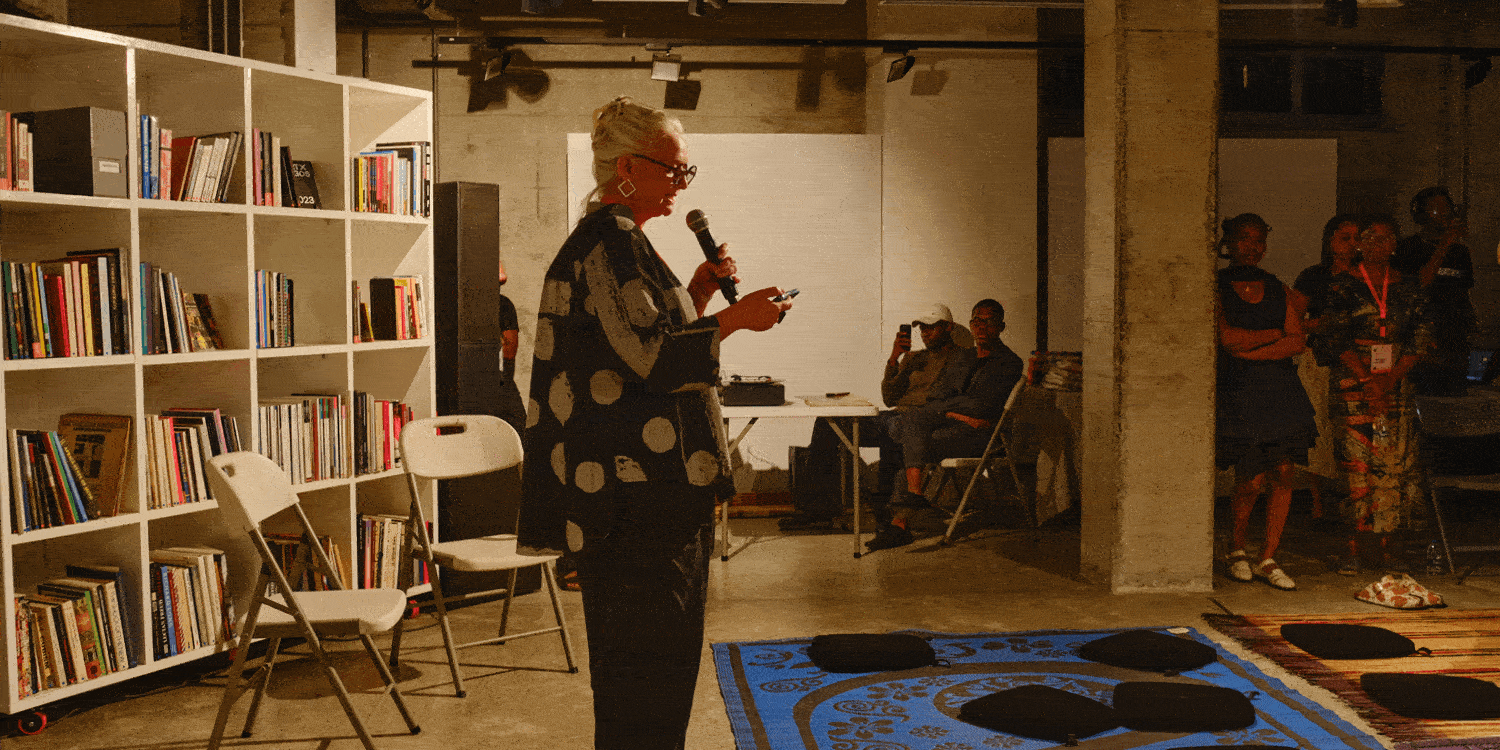 Re:assemblages Symposium Day One at G.A.S. Lagos. 4th November, 2025.
Re:assemblages Symposium Day One at G.A.S. Lagos. 4th November, 2025.
On Wednesday, 5th November, the second day opened in the Amphitheatre with a welcome address and readings from Annotations in Four Acts, tracing the archival afterlives of FESTAC ’77 and twentieth-century pan-African cultural festivals. Co-chairs Maryam Kazeem and Naima Hassan introduced the session, followed by performative readings from G.A.S. alumni Robyn Simpson and Ufuoma Ogbemudje, drawing on marginalia, footnotes, redactions, and fragments that accumulate in the margins of African independence movements and cultural festivals. The morning continued with researcher, curator, and art historian Mistura Allison’s lecture-performance, The Archive is a Trembling Body: Annotating the Second Congress of Black Artists and Writers through Gesture and Film in Flux. Mistura animated the margins of the 1959 Second Congress of Black Artists and Writers in Rome, re-reading it as a dynamic, unfinished, and diasporic conversation through film, still images, and live gesture.
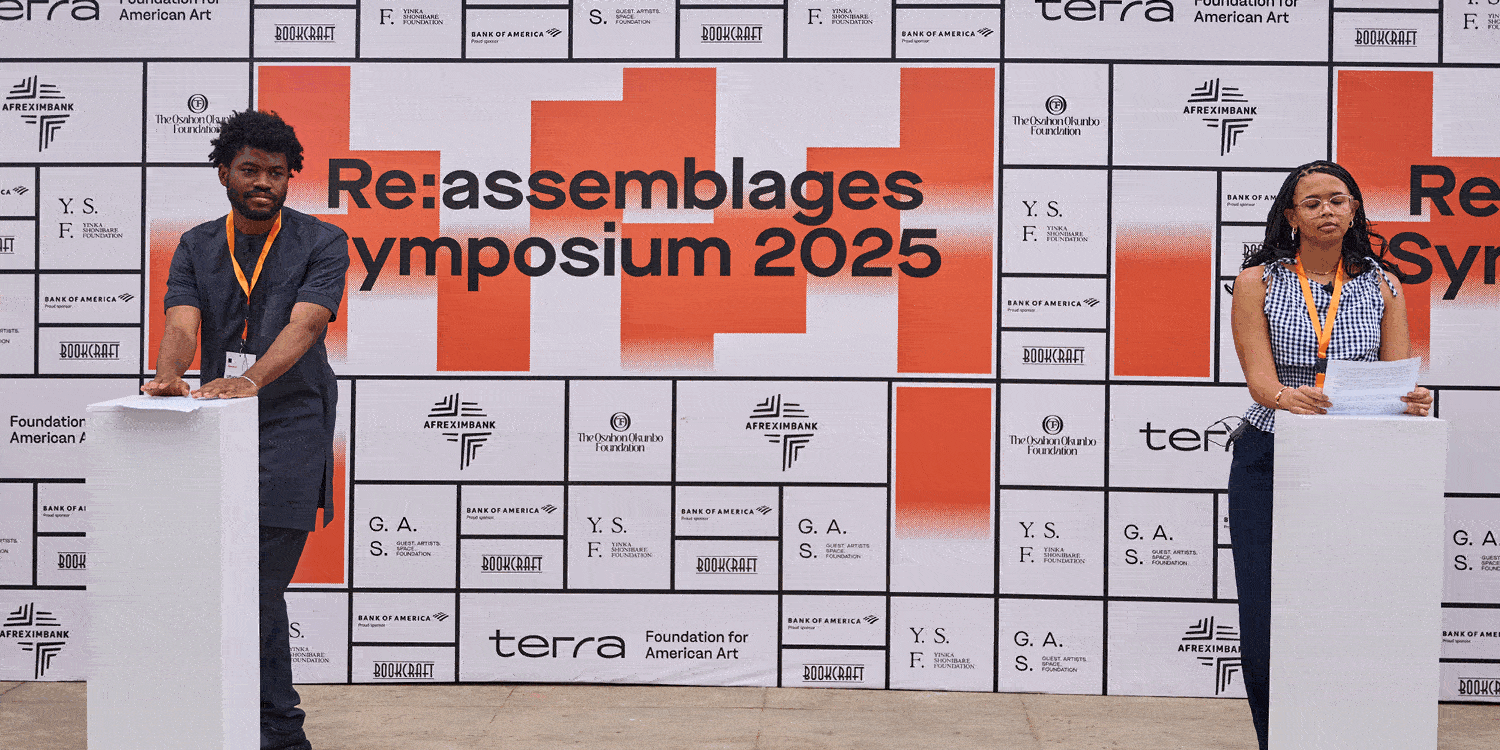 Re:assemblages Symposium Day Two at Alliance Française de Lagos. 5th November, 2025.
Re:assemblages Symposium Day Two at Alliance Française de Lagos. 5th November, 2025.
Following this, the keynote panel Catalysing African Collecting Futures, chaired by G.A.S. Trustee Bimpe Nkontchou with G.A.S. patrons Olufemi Akinsanya, Osahon H. Okunbo, and Kayode Adegbola, reflected on collecting as a generative cultural force. The discussion highlighted collectors whose practices extend beyond acquisition to shaping contemporary arts practice, from reference collections to supporting emerging artists. The second keynote, Reading Ecologies: Transforming Publishing in Africa, featured Dr. Nadine Siegert, Director of Goethe-Institut Nigeria, and G.A.S. alumna E.N. Mirembe. The conversation explored independent art publishing as a world-making practice, tracing historical magazines such as The Crisis, Black Orpheus, Transition, Staffrider, and Medu, alongside contemporary co-publishing projects across Africa and Europe.
Afternoon parallel sessions featured the Short Century Intensive Cohort, including multidisciplinary artist Miatta Kawinzi, PhD candidate at Columbia university Pujan Karambeigi, writer and educator Najha Zigbi-Johnson, and poet sadé powell. Miatta facilitated In ongoing reaching for freedom, a participatory workshop exploring pan-African freedom dreaming through movement, sound, and historical reflection. Concurrently, Pujan led Inside the Postcolonial Archive: Art and Independence, a hands-on engagement with archival materials revisiting the ambitions and tensions of The Short Century. In The Living Archive: Propositions for Collections into the Future, chaired by G.A.S. trustee Ann Marie Peña with contributions from Michelle Jacques, Azu Nwagbogu, and Dr. Jago Cooper, speakers reimagined collections as living entities shaped through collaboration, community stewardship, and dynamic curatorial practice.
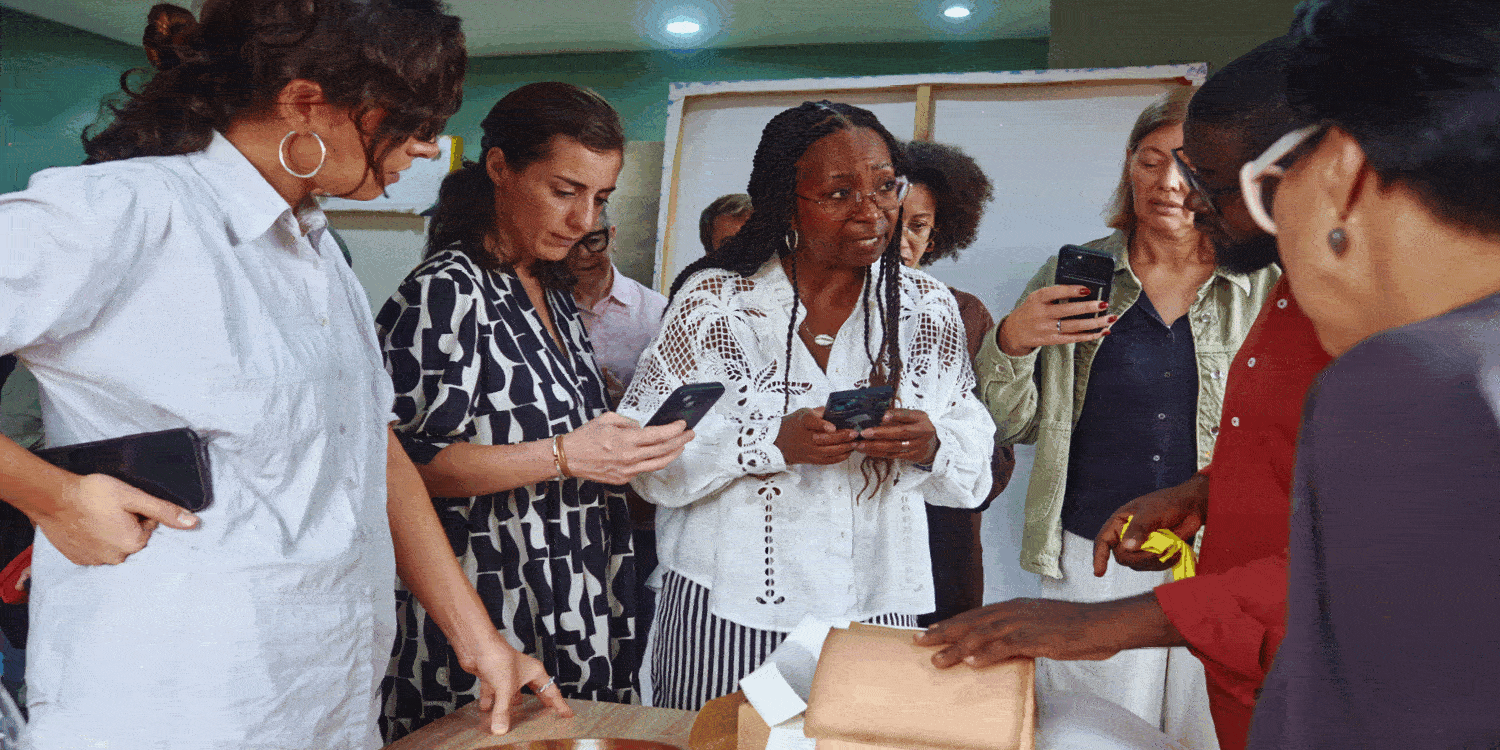 Re:assemblages Symposium Day Two at Alliance Française de Lagos. 5th November, 2025.
Re:assemblages Symposium Day Two at Alliance Française de Lagos. 5th November, 2025.
A second block of parallel sessions included Mapping Malcolm and the Aesthetics of the Black Radical Tradition, facilitated by Najha Zigbi-Johnson, where participants built a shared “diasporic syntax lexicon” tracing Malcolm X’s influence across Harlem, Lagos, and Pan-Africanist cultural worlds. In Unentitled [shortcenturybody]: A Poethic Rehearsal in Living Archive, sadé powell activated The Short Century archive as a relational body through typewritten erasures, blackout choruses, and material-poetic interventions. Concurrently, Achille Tenkiang’s lecture-performance Remember Black Mania(s) explored mania as ancestral and diasporic inheritance, constructing a speculative archive of psychic rupture through photography, self-portraiture, and annotated image-text.
The day culminated with Curatorial History and African Archives, chaired by Re:assemblages advisor Serubiri Moses with contributions from independent curator Tumelo Mosaka, arts strategist Kemi Ilesanmi, and Executive & Artistic Director of the Centre for Contemporary Art, Lagos Oyindamola Faithful. Drawing on the legacy of Okwui Enwezor’s The Short Century, the panel reflected on curatorial history as a critical, evolving discourse shaped by oral histories, African curatorial methodologies, and the imperative to address gaps in the archive. Closing remarks with Yinka Shonibare CBE drew together the day’s discussions, marking the conclusion of the symposium.
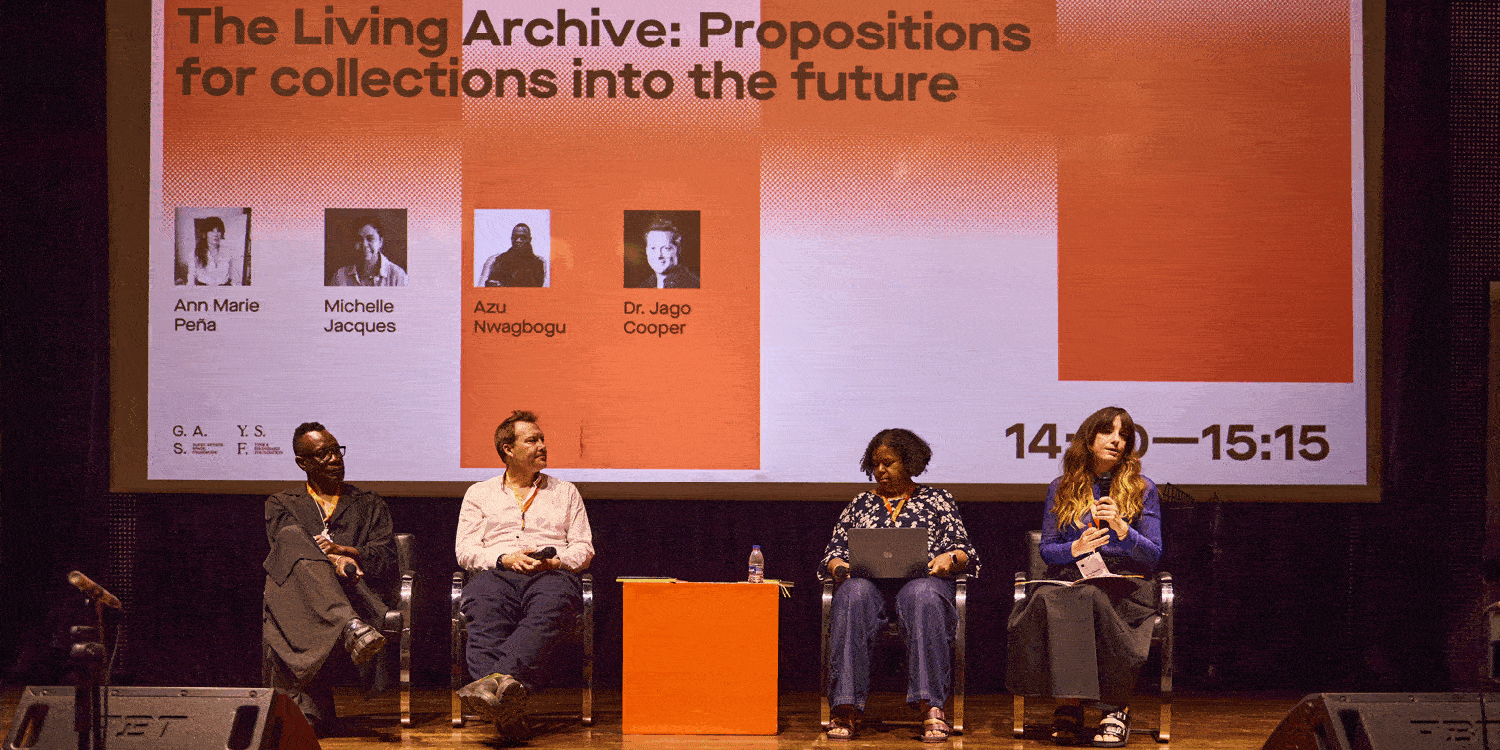 Re:assemblages Symposium Day Two at Alliance Française de Lagos. 5th November, 2025.
Re:assemblages Symposium Day Two at Alliance Française de Lagos. 5th November, 2025.
Acknowledgements
Re:assemblages is curated by Naima Hassan, and coordinated by Samantha Russell with thematic contributions from Maryam Kazeem, Ann Marie Peña, and Jonn Gale. The programme planning committee includes Belinda Holden, Moni Aisida, Samantha Russell, Catherine Bardi, Naima Hassan, Maryam Kazeem, Ann Marie Peña and Jonn Gale. Its esteemed advisory committee comprises Dr. Beatrix Gassman de Sousa, Natasha Ginwala, Dr. Rangoato Hlasane, Serubiri Moses, and Dr. Oluwatoyin Zainab Sogbesan.
Re:assemblages 2025–26 is generously supported by the Terra Foundation for American Art, Afreximbank under the auspices of the Afreximbank Art Program, The Osahon Okunbo Foundation (TOOF), Bank of America and VFD Microfinance Bank. The symposium booklet was generously printed by Bookcraft Africa.
Further delivery and project management support was provided by Yinka Shonibare Foundation and G.A.S. Foundation staff Adekunle Adeboye, Tomi Olukosi, Tomiwa Adegbola, Funmilola Ogunshina, and Joseph Damilola. The symposium’s visual identity was led by Lagos-based designer Seyi Olusanya, with event planning by Faith Oyovota, also based in Lagos.
